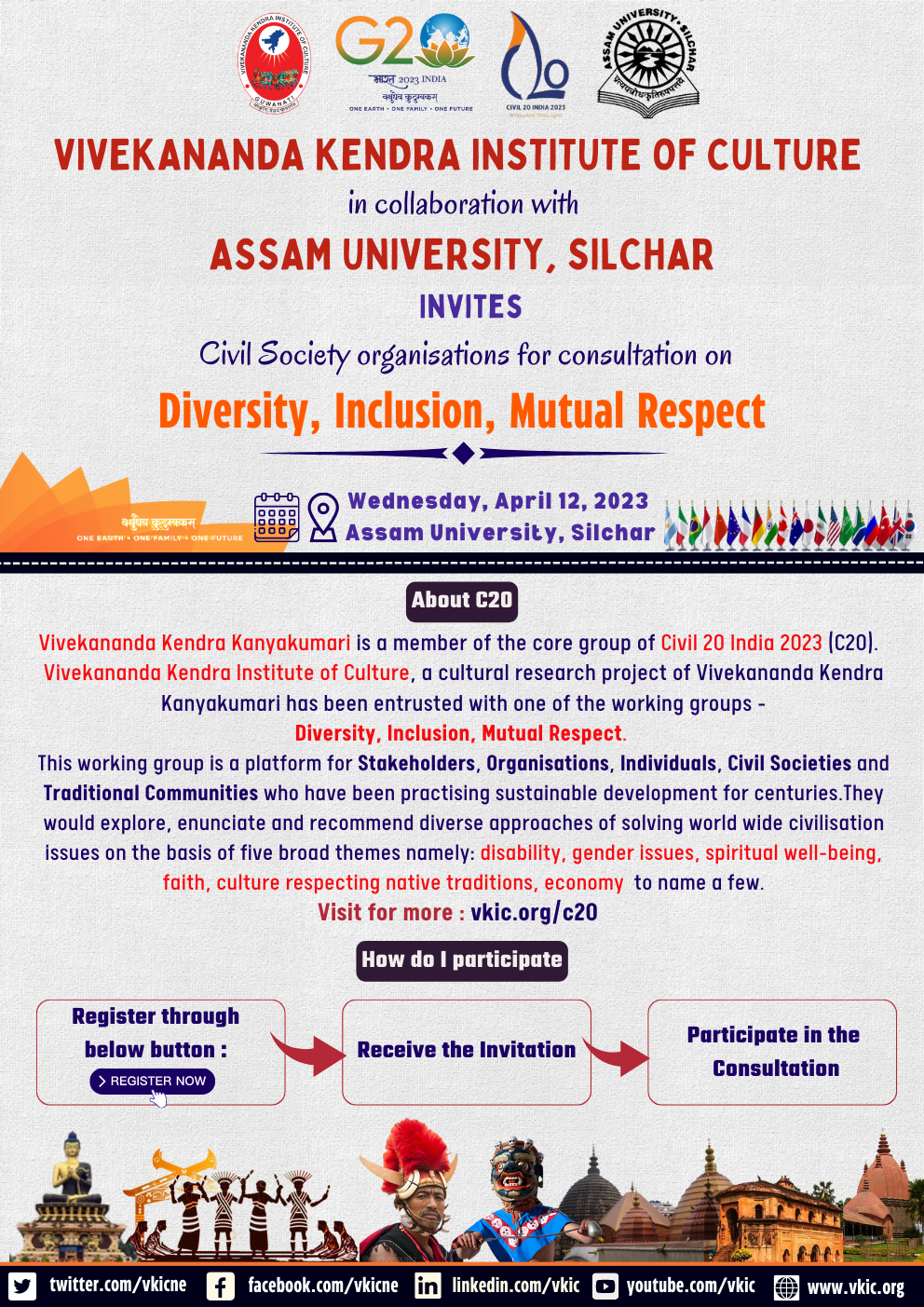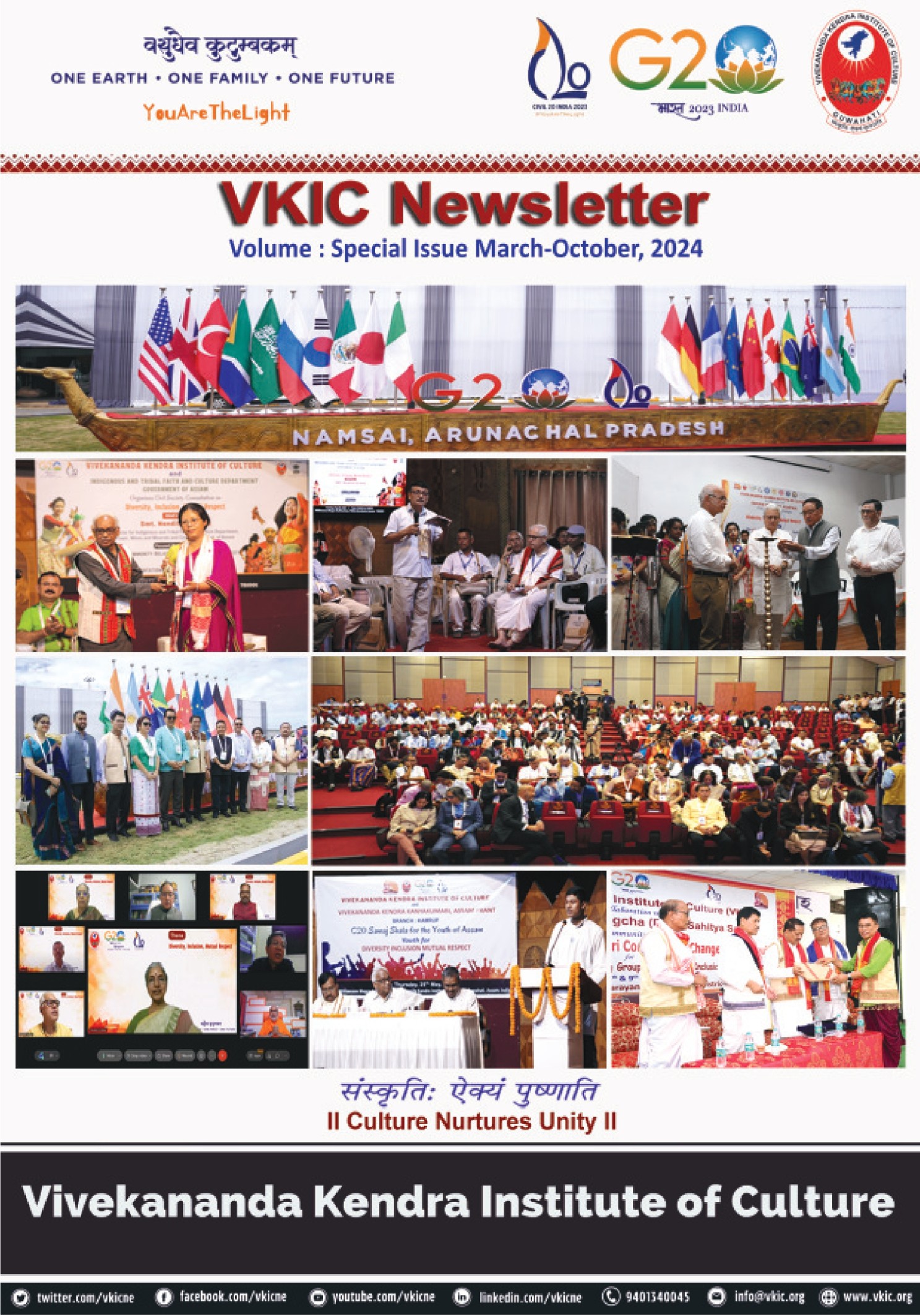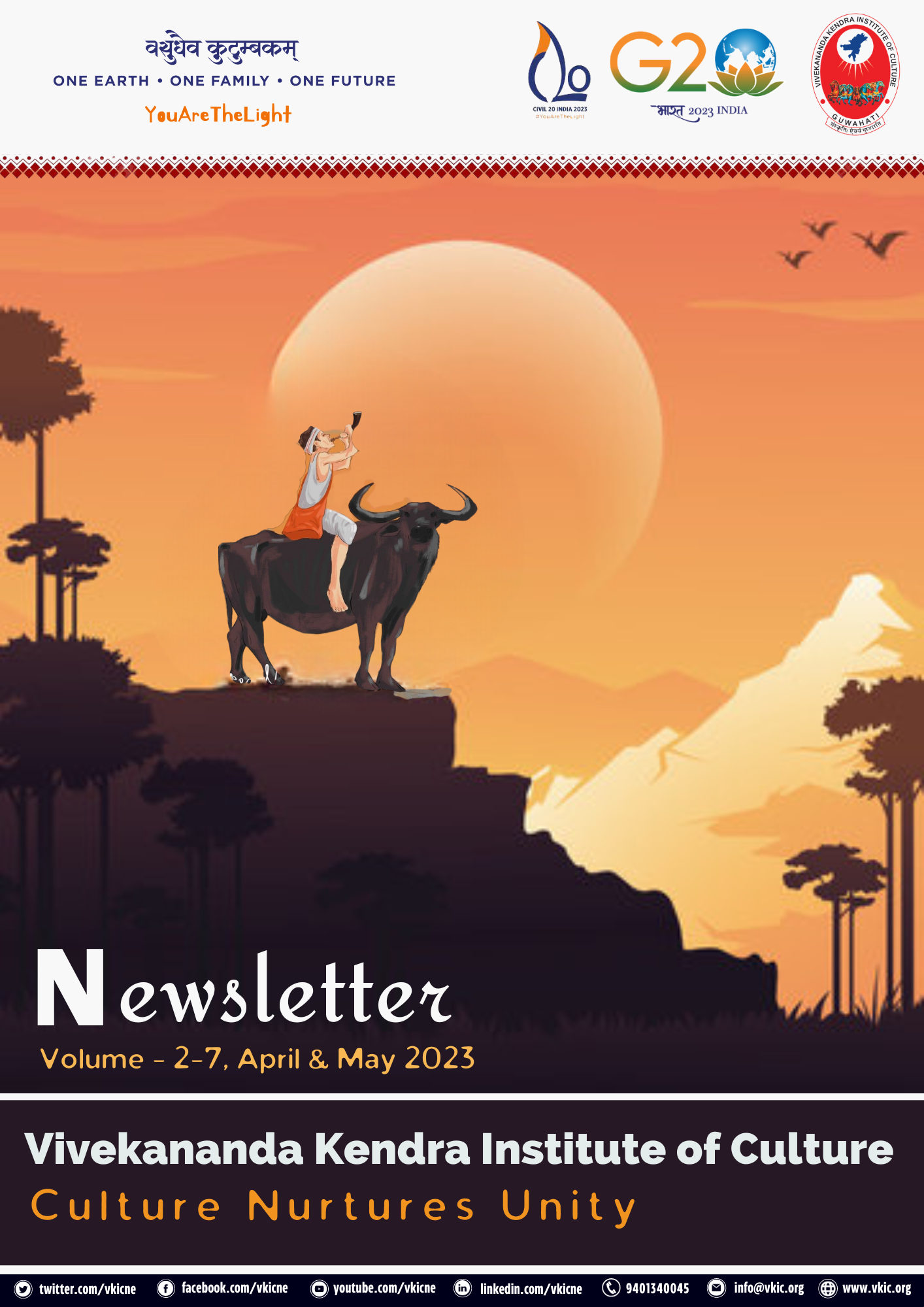Book Review on Traditional Systems of the Nocte
In this edition, Vivekananda Kendra Institute of Culture put forward a book reviewed on Traditional Systems of the Nocte.
TIT BITS OF DEORI SEMINAR
Regular Samparka of Vivekananda Kendra Institute of Culture in Deori villages of Assam are still underway. A seminar review baithak was held on 27th November 2022 which was due reporting to our esteemed readers. The venue of the seminar was fixed to Bordeori Gaon, Narayanpur, Lakhimpur district. 16 papers will be received. The review committee of Deori Sahitya Sabha will meet in Dibrugarh or Lakhimpur for review of papers.
A VISIT TO JONBEEL MELA
The three-day mela commenced from 19th of January, 2023 where different communities like Khasi and Jaintia from Meghalaya, Tiwas from Karbi Anglong come down and gather in the bank of the Jon Beel to participate in the historic barter system and strengthen the economic relationship. The term Jonbeel is an Assamese term, ‘Jon’ means ‘moon’ and ‘Beel’ means ‘wetland’ which means the large natural water body is shaped like a crescent moon.
Yoga Śāstra Sangamam 2023
Vivekananda Kendra Institute of Culture organise a National Conference on Yoga that is called Yoga Śāstra Sangamam 2023 on 2nd April 2023 at VKIC [ Riverside, Uzanbazar, MG Road, Guwahati, Assam, India -781001 ]. Registration for an event has been started. If you have interest, Please registered your self as soon as possible.
Study on Tagin Community
Tagin is one of the members of the larger destination of Tani tribes. Known for their warm hospitality and friendly nature, the community mostly inhabits in the Upper Subansiri district of Arunachal Pradesh. The study on Tagin community is undertaken by VKIC Research Associate (RA) Ku. Barnali Chakraborty. She visited Arunachal Pradesh for research purpose on the Tagin Community.
Mananeeya Nivedita R Bhide visits VKIC
Mananeeya Nivedita R Bhide, All India Vice President Vivekananda Kendra Kanyakumari visited VKIC on the 9thJan to 11th Jan 2023. First on the schedule was her talk on ‘Development Through Culture’ for the business community of Guwahati at Alok Bhawan Machkhowa which was jointly organized by VKIC and the Laghu Udyog Bharati.
Field Work relating to Namghar
The field visits during December 2022 and January 2023 relating to VKIC’s ongoing project to know and learn about the vibrancy of the Namghar as a Case Study were as follows –
First Session of Sanskriti Aniveshak
Vivekananda Kendra Institute of Culture (VKIC) in collaboration with Gauhati University had organised Sanskriti Anveshak, the interdisciplinary interactive forum of VKIC on the theme “Governance for Coexistence, Harmony and Progress – Traditions and Institutions of Northeast India”. Dr. Parimal Ch Bhattacharjee, Director,VKIC, while welcoming the gathering spoke on the work of VKIC and on the theme.
Third Session of Sanskriti Aniveshak
Vivekananda Kendra Institute of Culture & Gauhati University organizes a Lecture Series that is called Sanskriti Anveshak. The third session of Sanskriti Anveshak is held on Morning 11:00 to 12:30 of Saturday, 25 March 2023 at UGC-HRDC [Human Resource Development Center], Gauhati University, Assam on the theme of "Governance for Coexistence, Harmony and Progress – Traditions and Institutions of Northeast India".
The topic of third session is "Traditional Mediation Mechanisms and Governing Paradigm with reference to North East India" and the speaker is Prof. Subhram Rajkhowa, Former Dean, Faculty of Law, Gauhati University.



